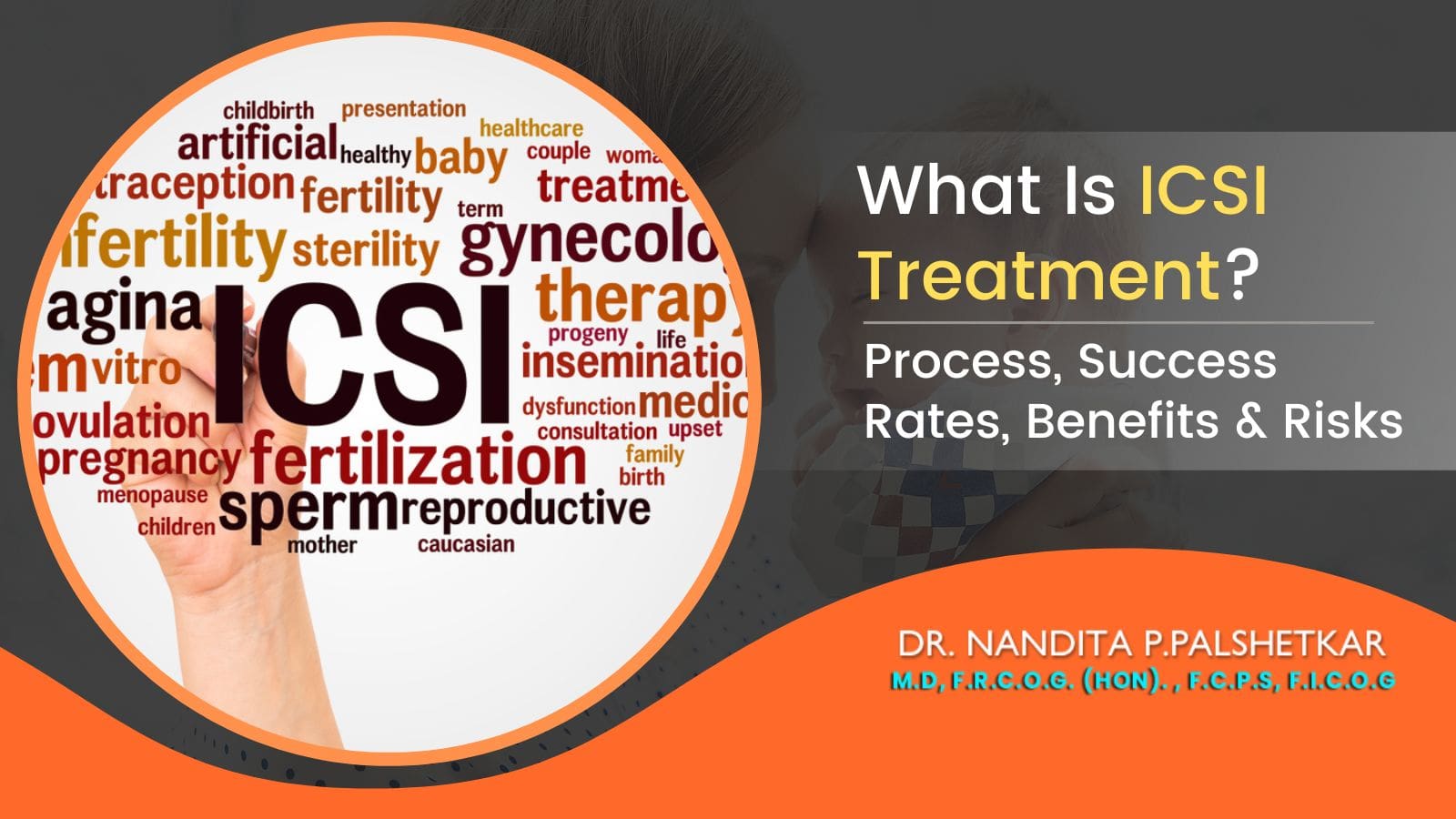

E-Brochure Download Now!

Infertility is a condition that affects many people around the world, and it can be caused by a variety of factors including hormonal imbalances, reproductive system issues, and lifestyle choices.
In India, according to a report, 10-14% or nearly 27.5 million couples in the country experience difficulty conceiving. The rate of infertility is thought to be higher in rural areas, where access to quality healthcare is often limited.
For couples struggling with infertility, finding the right treatment option can be a difficult and emotional process. One treatment option that has helped many couples achieve pregnancy is intracytoplasmic sperm injection (ICSI). Let's learn more about ICSI in detail here.
Intracytoplasmic sperm injection (ICSI) is a type of assisted reproductive technology (ART) in which a single sperm is injected directly into the cytoplasm of an egg to fertilize it. ICSI is typically used when there are issues with the sperm, such as low sperm count or poor motility, or when the sperm cannot be obtained through ejaculation, such as in men who have had a vasectomy.
ICSI differs from traditional in vitro fertilization (IVF) in that it involves the direct injection of sperm into the egg, whereas IVF involves the mixing of sperm and eggs in a laboratory dish, allowing the sperm to fertilize the eggs on their own. In IVF, the eggs are typically fertilized in a laboratory dish, and once fertilization has occurred, the resulting embryos are transferred to the woman's uterus.
Both ICSI and IVF can be effective treatment options for couples struggling with infertility, and the decision to use one over the other will depend on the specific circumstances and the recommendations of a fertility specialist.
The intracytoplasmic sperm injection (ICSI) procedure typically involves the following steps:
It is important to note that the exact steps of the ICSI procedure may vary depending on your situation and the protocols followed by the fertility clinic.
Intracytoplasmic sperm injection (ICSI) is typically recommended as a treatment option in the following situations:
Male factor infertility: ICSI may be recommended when the male partner has a low sperm count or when the sperm has poor motility. It can also be used when sperm cannot be obtained through ejaculation, such as in men who have had a vasectomy.
Previous failed IVF cycles: ICSI may be recommended for couples who have previously undergone in vitro fertilization (IVF) but have not achieved a pregnancy.
Unexplained infertility: In cases where the cause of infertility is unknown, ICSI may be recommended as a treatment option.
Failed fertilization during IVF: If fertilization does not occur during an IVF cycle, ICSI may be recommended as a way to bypass any issues with the sperm and directly inject a single sperm into the egg.
Genetic disorders: ICSI may be recommended for couples who are at risk of passing on genetic disorders to their children. This allows the doctors to carefully select the sperm to be used in the procedure.
You should remember that ICSI is not suitable for every couple and you must consult a fertility specialist before undergoing the treatment procedure.
ICSI has several benefits, which include the following:
The success rate of ICSI in India can vary depending on several factors, including age, the cause of fertility problems, and the overall health of the couple. In general, the success rate of ICSI in India is similar to that of other countries and can range from 50% to 80% or more, depending on various factors.
ICSI does not have too many risks involved if done under proper supervision from a skilled practitioner. However, in some unusual cases, these are the risks that are involved in ICSI treatment. These risks can include multiple pregnancies, egg damage, infection, and birth defects. That's why you need to consult the best fertility specialist near you.
Infertility, whether male or female, is a sensitive subject and it's important to choose a fertility specialist who is qualified and experienced in infertility treatment and with whom you feel comfortable talking. Dr. Nandita P. Palshetkar is one such specialist, who has been pioneering infertility treatments in Mumbai and India for almost three decades.
Schedule an appointment with her today to get started with your personalized treatment. Remember. there are many paths to starting a family and we will help you find the best one!